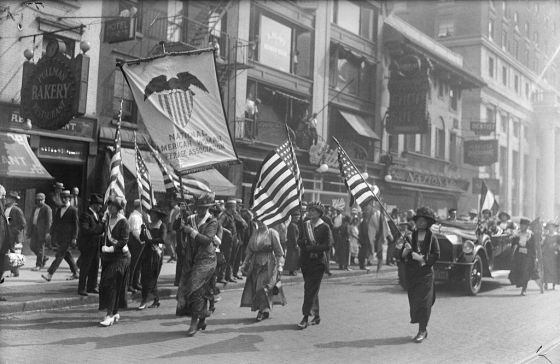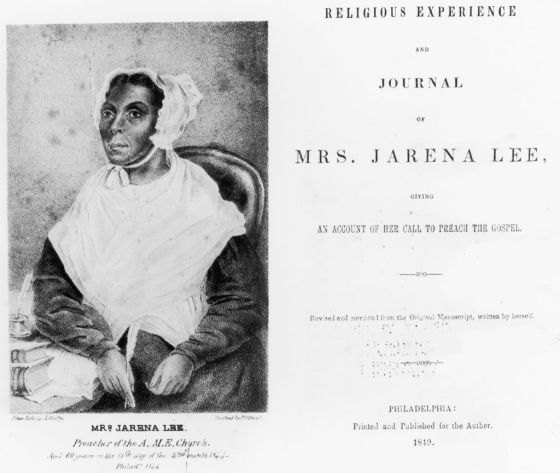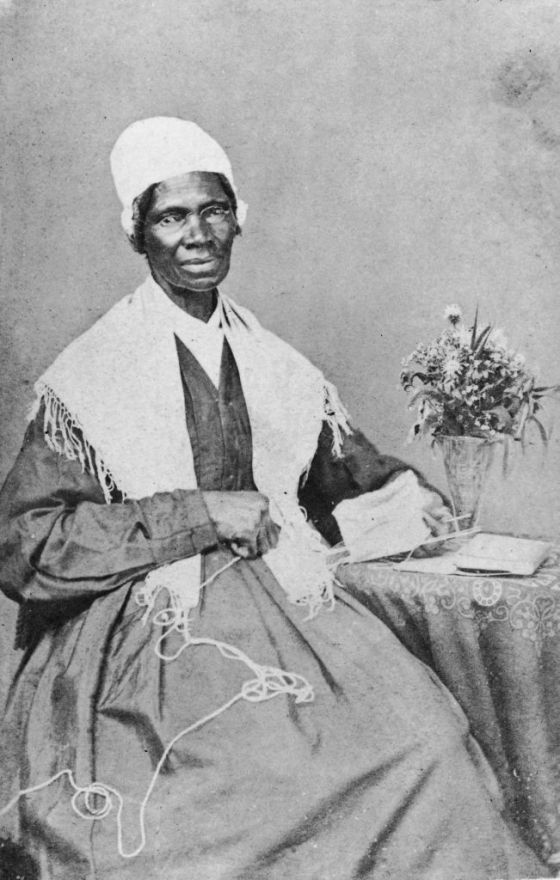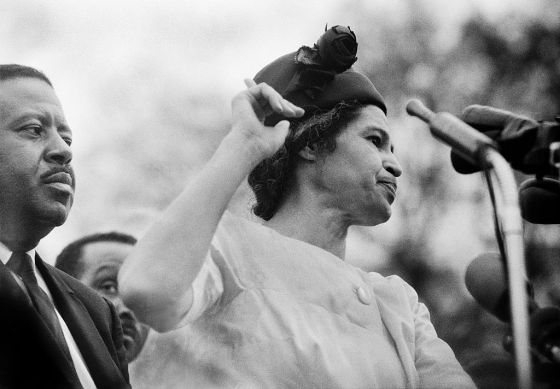‘It’s a Struggle They Will Wage Alone.’ How Black Women Earned the Right to Vote
The 19th Amendment, ratified a century ago on Aug. 18, 1920, is often hailed for granting American women the right to vote. And yet most Black women would wait nearly five decades more to actually exercise that right.
As the centennial of that Constitutional landmark arrives amid weeks of Black Lives Matter protests that have called for greater recognition of Black women’s contributions to society, historian Martha S. Jones aims to make sure that the Black American women who fought for voting rights will not be forgotten in her forthcoming book Vanguard: How Black Women Broke Barriers, Won the Vote, and Insisted on Equality for All.
TIME talked to Jones about the deep roots of this activism, which often predated the work of the famous white suffragists—and which still informs present-day debates over what history is worth remembering and how to chart a path to racial equality in the future.
TIME: In your book, you describe the 19th Amendment as marking a turn for Black women, but not in the way people might think. How so?
JONES: It’s a landmark moment when the U.S. Constitution includes an amendment that prohibits government from using sex as a criteria for voting rights. Like with any constitutional amendment, there’s a great deal more required in order to give it teeth.
In the case of the 19th Amendment, even as it’s ratified in August of 1920, all Americans are aware that many African-American women will remain disenfranchised. The 19th Amendment did not eliminate the state laws that operated to keep Black Americans from the polls via poll taxes and literacy tests—nor did the 19th Amendment address violence or lynching. Some African-American women will vote with the 19th Amendment. Some are already voting in California, New York and Illinois where state governments have authorized women’s votes. But many Black women faced the beginning of a new movement for voting rights in the summer of 1920, and it’s a struggle they will wage alone because now the organizations that had led the movement for women’s suffrage are disbanding.
What’s going on in the world in 1920 that leads to this moment?
One way to tell this story is that white suffragists launch, by 1913, a two-pronged campaign for a federal amendment. Alice Paul—head of the more radical, more confrontational wing of the movement that will hold public parades and processions—will picket the White House to pressure both the President and Congress to put forward a women’s suffrage amendment. At the same time, figures like Carrie Chapman Catt are working through more conventional political channels to win the ear and ultimately the mind of men like Woodrow Wilson. This two-pronged approach gains a momentum, particularly during years of the First World War. There are ultimately enough lawmakers in Washington who are willing to endorse or send to the states a constitutional amendment. And that then opens another chapter, because there still is a matter of persuading state-level lawmakers to ratify the amendment and that campaign will culminate in August of 1920 in the state of Tennessee, which is the 36th state to ratify the 19th Amendment.

And Black women are left out of this campaigning?
Yes, Black women are set at a distance quite intentionally because, in order to hold onto the support of many white southern women, it’s necessary to keep the organization distant from African-American women. And it’s also the case, that, implicitly, the promise is that the amendment will not interfere with the disenfranchisement of African-American women—so it’s not a campaign premised in women’s universal voting rights, but it’s a campaign premised in the process of selective voting rights for white American women.
You cite a really interesting example of the disconnect between the two groups—the attempt to build a monument to “mammies.” How did that attempt factor into the campaign for voting rights?
The United Daughters of the Confederacy, the organization responsible for many Confederate monuments that litter the American landscape, proposes a monument in Washington, D.C., and that would have been a monument to the so-called “colored mammies” of the South, to some mythical version of enslaved women who were loyal to the southern slave-holding families, who were apolitical in their disposition, who were contented as enslaved people.
Black women know that if a monument to this mythical figure becomes part of the national landscape, it’s one more instrument in their political disenfranchisement. The “mammy” figure isn’t an endorsement of Black women’s political aspirations or their political capacities. I write about the women of the National Association of Colored Women (NACW), who organized to oppose the monument. That monument is defeated even as many other Confederate monuments, as we know today, were successfully installed both in Washington and across the country.
Hallie Quinn Brown, the president of the NACW, said if southern white women want to erect a monument to formerly enslaved women, they can do it by encouraging their lawmaker husbands to pass civil rights legislation that would guarantee to Black Americans decent housing, education, healthcare and more.
Read more: Confederate Monuments Have Come Down in Cities Across America. What Should Take Their Place?
Your book argues that Black women voting-rights activists predated the famous white suffragists. What are the roots of that story?
Oftentimes historians place the start of the suffrage movement in 1848 at a meeting in Seneca Falls, N.Y. Seneca Falls was not the important meeting we might have thought. It was a small local meeting. African-American women were not present. So my question in writing Vanguard was, “Where were Black women if they didn’t come to the Seneca Falls meeting?” That prior spring, in Philadelphia, they were organizing to attend a conference of the African Methodist Episcopal (AME) Church, one of the large Black religious denominations of the period. In that church, there is a fight brewing over women’s rights, specifically church women who want licenses to preach. So even before Seneca Falls, Black women are organizing together about their rights.
Part of the lesson out of Vanguard is that if we only look for African-American women suffragists in organizations put together by white American women, we’re going to be disappointed in the sense that their numbers will be small—or, in the example of Seneca Falls, nonexistent. At the same time, if we follow African-American women to where they are and listen to what they have to say and watch what they do, turns out they are as interested in political power and the problem of sexism as any community of American women—but they’re doing that work on their own terms. This is the story all the way through.
Who was the earliest Black women’s voting rights activist you found in your research?
One of the questions I had was, “Where did Black women’s political philosophy come from?” One of the signatures of Black women’s suffrage has become this dual critique of racism and sexism. To understand the roots of that, go back to the beginning of the 19th century. A Black woman Methodist preacher, Jarena Lee, needs a preaching license to make a living and writes a memoir in 1836 on ways she confronts sexism in her denomination. I write about Maria Stewart, a widowed teacher in Boston in the 1820s, who is deeply concerned about the future of African American communities that have made the transition from slavery to freedom. She first writes a pamphlet and then is invited to step to the podium. These are the foremothers of what becomes the core idea that animates Black women’s quest for political power and political rights.

You discuss a myth about Sojourner Truth’s “Ain’t I A Woman” speech. What does that myth say about how we frame, and how we mischaracterize, Sojourner Truth?
One of the aspirations of this book is to take Black women out of myths, out of snapshots and snippets, and into the fullness of their own lives and their ideas as well as their activism. We learn a great deal from historian Nell Painter, whose biography of Sojourner Truth in the 1990s aims right at the myth, to show us the woman, to show us the life. One of the things she does is have us look side by side at two versions of the so-called mislabeled “Ain’t I A Woman” speech, to appreciate that there was a contemporaneous, written recording of the speech she gave in Akron, Ohio, in 1851, that does not include the phrase “Ain’t I A Woman” at all. It’s many years later that another writer takes a kind of license with the speech and invents this refrain.
Truth, over the course of her lifetime and subsequent to her lifetime, has been the object of myth-making. [This is] true for other women in Vanguard as well; they are held out at moments when they are convenient or they seem to serve another argument or purpose. But too often we don’t get the full sense of their lives and how they are connected to their own histories and the histories of other Black women. Truth was a formidable speaker, but she wasn’t a woman of the South, not a woman of the country. Professor Painter points out she likely spoke with a Dutch accent rather than a Southern accent. So “Ain’t I A Woman” recasts Sojourner Truth as a woman of the South, a woman of country origins, and while there are elements of that recreation that are in the spirit of Sojourner Truth, we know the writer takes those liberties—despite having been present for the original speech.

You also explore the Black women who fought for their right to vote in the years between 1920 and the Voting Rights Act—including Rosa Parks. You frame her political awakening as partly to do with an experience with sexual harassment in the middle of the Great Depression. How does that incident connect to the fight for voting rights?
Rosa Parks is someone who is deeply engaged, in her politics, with the problem of sexual violence, something that grows out of her own experience. Vanguard is an effort to fill her out rather than leave her as a mythical figure. We miss her voting rights work because we focus on her role in the bus boycott, but her very first foray into politics is going to be with local voting rights activists and E.D. Nixon, and she’s going to be part of some of the very risky early voting rights organizing in Alabama that predates even Selma.

One of the threads that distinguishes Black women’s quest for the vote from other voting rights campaigns is the idea that voting rights might very well be a tool for resisting and opposing sexual harassment and sexual assault. I place the origins of that in the stories told by enslaved women who aren’t speaking expressly about politics but put their own experiences of sexual violence into the public sphere. Then we come to the modern era and the stories of Rosa Parks and Fannie Lou Hamer, women in the modern civil rights era whose politics are affected by influenced by sexual violence. We can tie it all the way to the #MeToo movement in Tarana Burke, who continues to center those concerns for us. The story of racism is often told from the perspective of men; Black women experience racism in a ways that are distinct and defining for them, and sexual violence is a good example of that.
What lessons do you want readers to take away from the book?
I hope the book helps us to more insightfully, more rootedly understand the Black women who are running for Congress this year in record numbers, who will turn out in the polls in the high-90 percents in November, and are on Joe Biden’s shortlist, like Val Demings, who credits her political career to one of the women in my book, Mary McLeod Bethune. I hope Vanguard is a book that helps us understand the women political leaders of our own time and inspire the next generation of girls and young women to take politics as part of their possibilities in the future.